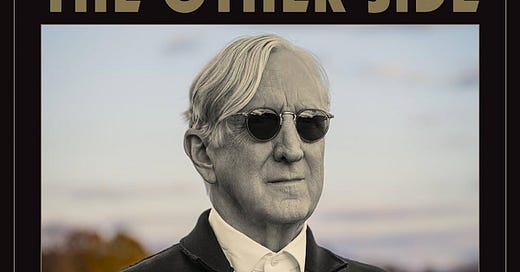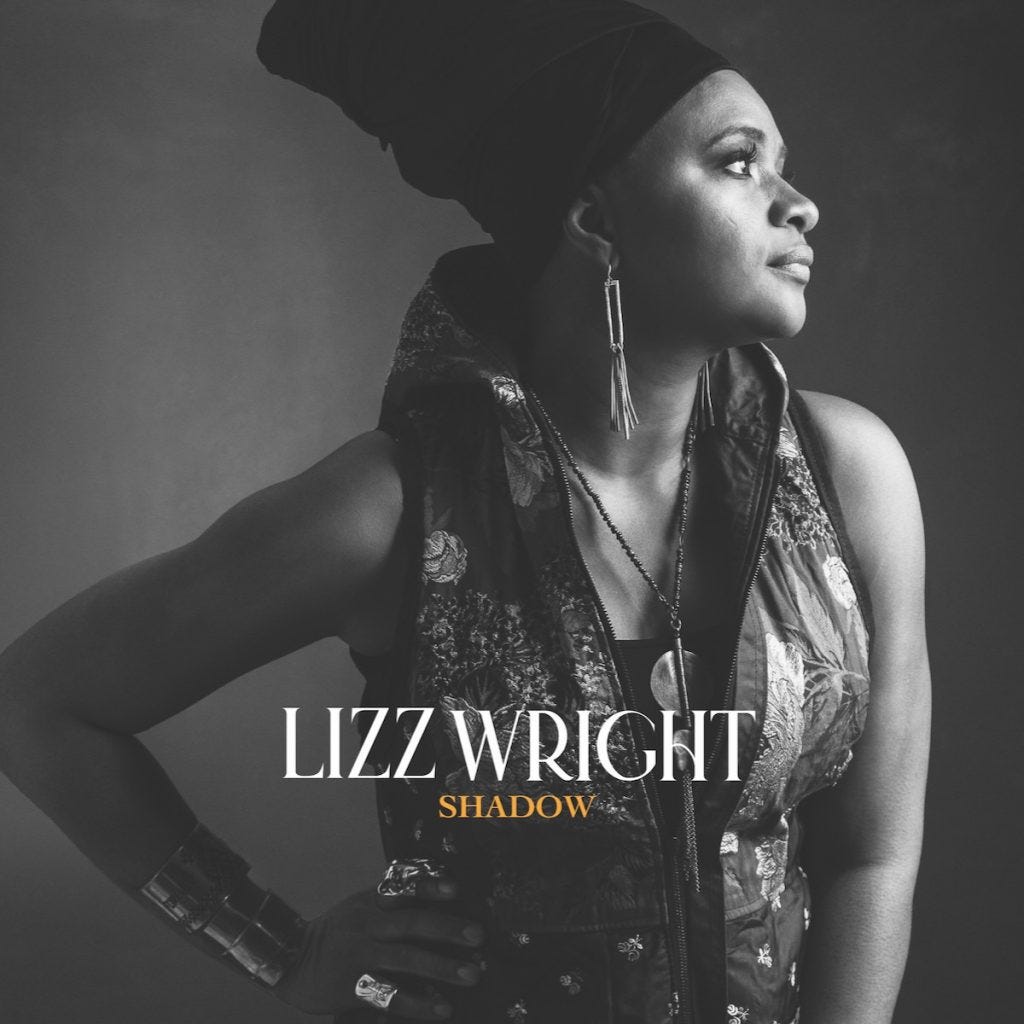Peaks & Valleys
Distinguished new albums from T Bone Burnett and Lizz Wright offer riches of beauty, wisdom, and spirituality.
T Bone Burnett - The Other Side
There wasn’t supposed to be another T Bone Burnett album— at least not one like this. Now in his mid-seventies, the legendary singer, songwriter, and producer has spent the last several years working on a swan song project called Invisible Light, a series of moody soundscapes that found Burnett airing all his prophetic warnings about the dehumanizing nature of digital technology. Buying a new guitar was all it took to unlock something in Burnett’s brain— and just like that, a torrent of spritely love songs and laments, wrapped around familiar folk, blues, and country idioms, came rushing out of him.
That deluge results in The Other Side, the first album to find Burnett in full-on singer/songwriter mode since 2008’s acrid Tooth of Crime. Co-produced with Burnett, Colin Linden, and Michael Piersante, it’s the most straightforwardly enjoyable T Bone Burnett project in ages. It finds the singer channeling a lifetime of accrued wisdom, but also summoning a lighter touch than anything on the ponderous Invisible Light recordings.
In fact, it is hard to imagine an album playing to Burnett’s strengths quite like this one does. Between his curatorial work with the O Brother, Where Art Thou? soundtrack and production for the likes of Gillian Welch and Rhiannon Giddens, Burnett has proven himself to be a stalwart conservationist for the American folk tradition. On The Other Side, he revels in the warm rustle of acoustic guitar, upright bass, and the occasional mandolin or fiddle, all while writing songs that feel earthy, timeless, and deceptively simple.
Burnett’s songwriting has always viewed modernity with a skeptical eye, diagnosing the spirit of the age with a moral rigor that veers between righteous and scolding. There’s a bit of that rectitude here, with Burnett casting himself as a man increasingly out of step with the world around him. “Everyone lives in the past/ But nobody seems to remember,” he muses on the sagely “Everything and Nothing.” “Everybody wants to be forgiven/ But nobody wants to confess.”
But if Burnett is as sensitive as ever to social and moral decline, he’s equally clued in to the decline of his own body. A winking blues number called “Sometimes I Wonder” considers mortality with both candor and good humor: “Sometimes I wonder if my time is long/ I got a feeling something’s gone on wrong.”
There’s a river of Christian spirituality that runs through Burnett’s music, grounding his broader concerns about truth and morality. The Other Side opens with “He Came Down,” which sounds like it could be an ancient folk song— right down to its cryptic references to incarnation: “After he set the prisoners free/ After they hung him from a tree/ Nothing was as it used to be.” This is the kind of oblique parable that Burnett’s pal Bob Dylan might have written back during the John Wesley Harding era.
As a producer, Burnett’s calling card has always been a kind of stripped-down austerity. Though recorded without any drums, The Other Side has a lot of grit to it, its songs sounding like they have been passed down for generations rather than written fresh for this album. The production honors every creak in Burnett’s gruff, wizened voice, but also leaves room for surprises— “Sometimes I Wonder” is surprisingly swinging, while late-album highlight “The Town That Time Forgot” is a lush pop melodrama.
While Burnett can come across as dour at times, The Other Side is infinitely more inviting than any of his other solo albums of the past 25 years. Part of that’s because he quite literally welcomes other voices, pairing his thick Texas growl with honeyed harmonies from the likes of Weyes Blood and— on nearly half these songs— the indie darlings Lucius.
Still, the most winsome guest appearance belongs to Rosanne Cash, who echoes Burnett on the heartbroken yet stoic “(I’m Gonna Get Over This) Some Day”— a country lament so spare and so pure, it could pass for a lost Hank Williams tune. It’s the clearest evidence of all of Burnett’s accrued wisdom, which manifests here as confident simplicity.
My rating: 7.5 out of 10.
Lizz Wright - Shadow
One of the season’s most pervasive TikTok trends involves the phrase “very demure, very mindful,” words that have replaced Brat as the summer’s most versatile meme fodder. There is nothing about the music of Lizz Wright that suggests Internet virality— what she does is too slow, too patient, too painstaking— yet these words make apt descriptors of her rich recorded oeuvre. A singer who combines the rafter-shaking power of the gospel tradition with the precise phrasing of jazz, Wright has cultivated an impressive catalog of albums that all present themselves as tasteful, sophisticated, and mature.
Her latest, an august collection called Shadow, joins her breakout album Dreaming Wide Awake and the Joe Henry-produced Grace as one of her most regal and enjoyable works. As is her wont, Wright draws from a broad selection of styles and traditions— jazz and blues, country and urbane pop— but draws them together into a cohesive, cosmopolitan whole.
Among Wright’s many talents, her gifts as a ballad singer are perhaps the most pronounced. A highlight of Shadow is the standard “I Concentrate on You,” its leisurely pacing and sumptuous string arrangement providing Wright with the chance to savor every vowel and linger over every vocal inflection.
More surprising are the energetic numbers, including an early album highlight called “Your Love.” A gently-pulsing, upscale dance tune, the song sounds luxurious with its slinky Meshell Ndegeocello bass line and the glistening harp of Brandee Younger. The song goes down smooth and easy— if anything, Shadow might benefit from a few more moments where Wright lets herself sound a little bit ruffled. The closest she gets here is “Sweet Feeling,” a sly, twangy blues with a moaning church organ.
Wright has always been a gifted interpretive singer, and Shadow makes space for deeply-felt takes on Sandy Denny and Gillian Welch. But the best song is Caitlin Canty’s “Lost in the Valley,” a folk ballad that feels epic both because of its cinematic violin work and its resonant lyrics. “Tell me when I can start again/ I’ll get it right this time,” Wright sings, inhabiting the role of a pilgrim making progress— and as usual, she makes it sound utterly believable.
My rating: 7 out of 10.







"There’s a river of Christian spirituality that runs through Burnett’s music...."
I see what you did there.
Wish you could join me and Anne when we see him live in a few weeks.